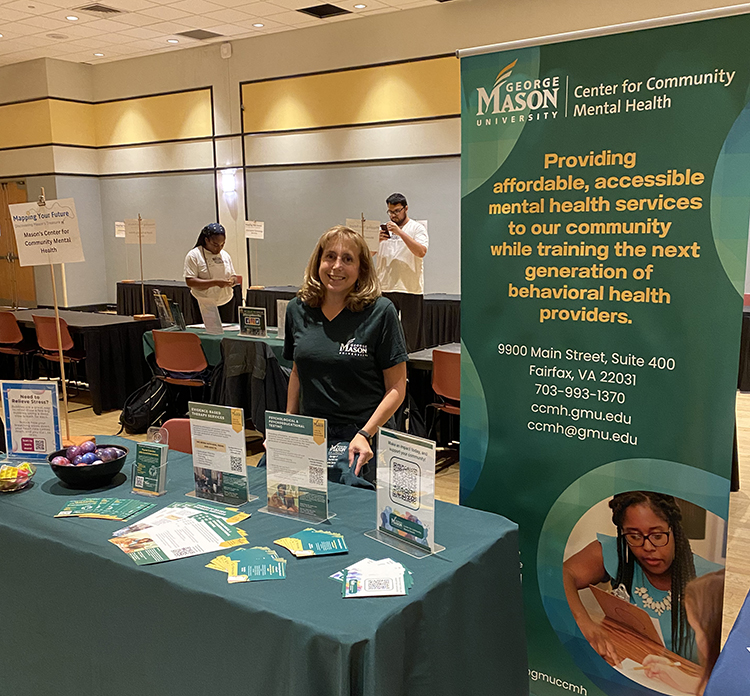Despite 9 out of 10 adults reporting in an October 2022 CNN/Kaiser Family Foundation survey that they believe there is a mental health crisis in the United States, the stigma around treatment remains and can lead to discrimination and create barriers to recovery. The truth is that everyone experiences a range of issues that impact their mental health in some capacity, from frustrating deterrents in life plans to an overwhelming crisis.
Individuals within the George Mason University community are not immune to mental health struggles and have learned that finding the right place for treatment can be difficult. As such, all faculty, staff, and contractors have the opportunity to receive three free hour-long telehealth intervention sessions with the university’s Center for Community and Mental Health (CCMH).
“If someone needs immediate coping skills to help them handle a crisis, it’s not an easy process,” said Robyn Mehlenbeck, director of the Center for Community Mental Health. “Universities typically provide students with free and low-cost mental health services but not to employees. That is why Mason offers this unique program which provides immediate services to all faculty, staff, and contractors.”

Upon deciding they need assistance, individuals fill out a form that provides an overview of their needs to CCMH. They are then matched with and able to talk to a mental health provider or doctoral student who is trained in counseling within 48 hours of submitting the form. From there, the three free sessions typically occur once per week and are mapped out to set goals and start learning coping skills, add more skills once the previous skills are established, and then review and discuss any other needs.
“Our goal is to provide help when people realize they’re struggling before they get to a crisis point,” Mehlenbeck said. “We’re able to do this by teaching individuals how to manage their thoughts, understand their distress tolerance level and how to tolerate uncertainty, as well as stimulate behavior activation, emotion regulation, mindfulness, relaxation, and grounding skills, depending on what works best for each individual.”
While CCMH data shows that approximately 60 percent of those who take advantage of the sessions do not request more, those who would like to continue are referred to the CCMH wait list and are then matched with a therapist based on their needs.
“We take pride in our mission of providing culturally responsive evidence-based clinical training in assessment, consultation, and intervention, as well as providing accessible, culturally sensitive, state-of-the-art mental health services to the community. We work hard to adapt any intervention we do to ensure it is culturally sensitive and appropriate,” Mehlenbeck explained.
As anonymity can be a concern, Mehlenbeck noted that they are not connected to Human Resources and all services are treated confidentially; the records of all those who seek services are not released without permission. Faculty who are concerned they might be paired with doctoral students in their program should make a notation in their initial sign-up form to ensure there is no crossover.
For more information about additional sessions and costs, as well as other services, visit the CCMH website.
Faculty should be aware that University Life Vice President Rose Pascarell sent an email to all students on October 25 reminding them of a variety of additional available resources, including:
